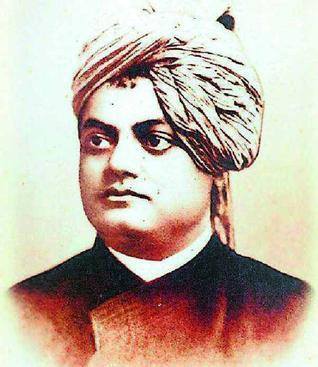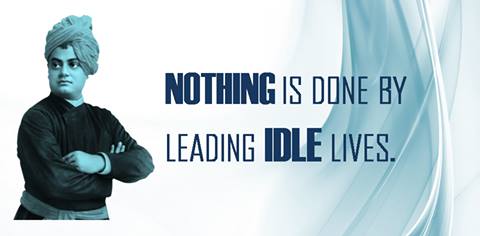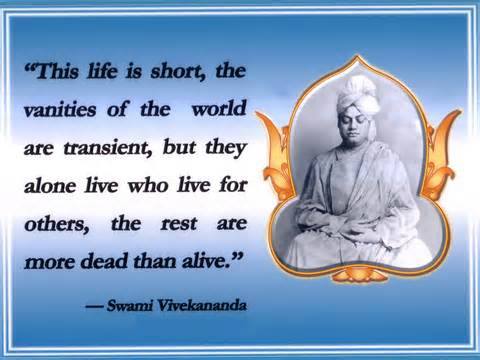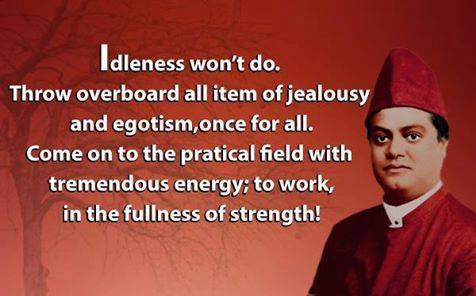Karma-Yoga : Ch-7. Part-13.

CHAPTER VII . FREEDOM : : Part-13. In this tremendous fiery furnace where the fire of duty scorches everybody, drink this cup of nectar and be happy. We are all simply working out His will, and have nothing to do with rewards and punishments. If you want the reward, you must also have the punishment; the only way to get out of the punishment is to give up the reward. The only way of getting out of misery is by giving up the idea of happiness, because these two are linked to each other. On one side there is happiness, on the other there is misery. On one side there is life, on the other there is death. The only way to get beyond death is to give up the love of life. Life and death are the same thing, looked at from different points. So the idea of happiness without misery, or of life without death, is very good for school-boys and children; but the thinker sees that it is all a contradiction in terms and gives up both. Seek no praise, no reward, for anything...













